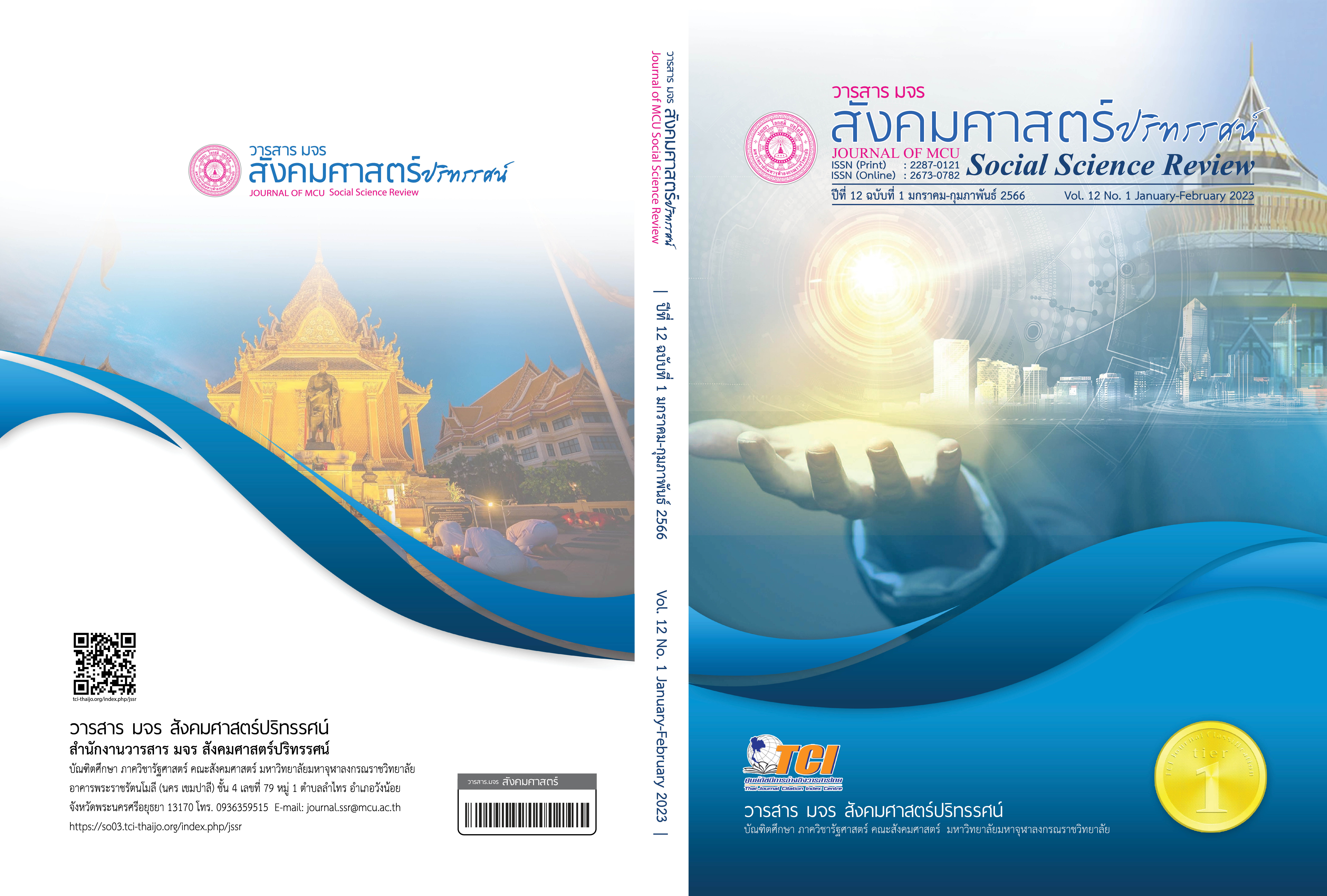ค่านิยมในการเรียนรู้คณิตศาสตร์ของนักเรียนระดับชั้นประถมศึกษาตอนปลายในชั้นเรียนที่ใช้การศึกษาชั้นเรียนและวิธีการแบบเปิด
คำสำคัญ:
นักเรียนชั้นประถมศึกษาตอนปลาย, ค่านิยม, การเรียนรู้คณิตศาสตร์, การศึกษาชั้นเรียน, วิธีการแบบเปิดบทคัดย่อ
การวิจัยครั้งนี้มีวัตถุประสงค์เพื่อสำรวจและวิเคราะห์ค่านิยมในการเรียนรู้คณิตศาสตร์ของนักเรียนในระดับชั้นประถมศึกษาตอนปลายภายใต้บริบทของชั้นเรียนที่ใช้นวัตกรรมการศึกษาชั้นเรียนและวิธีการแบบเปิด ผู้วิจัยใช้การวิจัยเชิงสำรวจโดยใช้ระเบียบวิธีแบบผสมผสาน โดยกลุ่มเป้าหมายคือนักเรียนระดับชั้นประถมศึกษาตอนปลาย จำนวน 43 คน ระดับชั้นประถมศึกษาปีที่ 4-6 จากโรงเรียนแห่งหนึ่งในจังหวัดขอนแก่น ซึ่งเป็นโรงเรียนต้นแบบในโครงการพัฒนาครูด้วยนวัตกรรมการศึกษาชั้นเรียนและวิธีการแบบเปิด ตั้งแต่ปีการศึกษา 2549 จนถึงปัจจุบัน เครื่องมือในการเก็บรวมรวมข้อมูล คือ แบบสำรวจค่านิยมในการเรียนรู้คณิตศาสตร์ การสัมภาษณ์ครูผู้สอนและผู้สังเกต วีดิทัศน์จากการสังเกตชั้นเรียน และใบกิจกรรมของนักเรียน เก็บรวบรวมข้อมูลในช่วงภาคการศึกษาที่ 2 ปีการศึกษา 2563 และวิเคราะห์ข้อมูลตามกรอบแนวคิดของ ไมตรี อินทร์ประสิทธิ์ (2557) และกรอบแนวคิดของ Barkatsas et al. (2019)
. ผลการศึกษาพบว่าค่านิยมในการเรียนรู้คณิตศาสตร์ของนักเรียนในชั้นเรียนที่ใช้นวัตกรรมการศึกษาชั้นเรียนและวิธีการแบบเปิด นักเรียนให้ความสำคัญในระดับมากที่สุด คือ ค่านิยมเกี่ยวกับกระบวนการแก้ปัญหา วิธีการเรียนการสอน การเชื่อมโยงและคณิตศาสตร์นอกห้องเรียน และแนวคิดทางคณิตศาสตร์
เอกสารอ้างอิง
กองทุนเพื่อความเสมอภาคทางการศึกษา (กสศ.). (2563). ปรับการเรียน เปลี่ยนการสอน เลิกท่องจำความรู้มุ่งสู่การฝึกแก้ปัญหาด้วยตัวเอง. สืบค้น 17 สิงหาคม 2563, จาก https://www.eef.or.th/tsqp-23-07-20/.
เข็มทอง คตมรคา. (2559). ค่านิยมนักเรียนเกี่ยวกับการเรียนคณิตศาสตร์ในบริบทชั้นเรียนที่ใช้วิธีการแบบเปิด (วิทยานิพนธ์ปริญญาศึกษาศาสตรมหาบัณฑิต สาขาวิชาคณิตศาสตรศึกษา). ขอนแก่น: มหาวิทยาลัยขอนแก่น.
ตีบจันทร์ สีละนุวงศ์. (2561) การศึกษาค่านิยมของนักเรียนเกี่ยวกับสิ่งที่นักเรียนให้ความสำคัญในการเรียนรู้คณิตศาสตร์ที่ใช้การศึกษาชั้นเรียนและวิธีการแบบเปิด ในโรงเรียนประถมสาธิต วิทยาลัยครูปากเซ สาธารณรัฐประชาธิปไตยประชาชนลาว (วิทยานิพนธ์ปริญญาศึกษาศาสตรมหาบัณฑิต สาขาวิชาคณิตศาสตรศึกษา).ขอนแก่น: มหาวิทยาลัยขอนแก่น.
ธัญญา กาศรุณ. (2556). การเปลี่ยนแปลงค่านิยมเกี่ยวกับการสอนคณิตศาสตร์ของครูในโรงเรียนต้นแบบการใช้นวัตกรรมการศึกษาชั้นเรียนและวิธีการแบบเปิด (วิทยานิพนธ์ปริญญาปรัชญาดุษฎีบัณฑิต สาขาวิชาคณิตศาสตรศึกษา). ขอนแก่น: มหาวิทยาลัยขอนแก่น.
ไมตรี อินทร์ประสิทธิ์. (2546). การปฏิรูปกระบวนการเรียนรู้วิชาคณิตศาสตร์ในโรงเรียนโดยเน้นกระบวนการทางคณิตศาสตร์. ขอนแก่น: ขอนแก่นการพิมพ์.
______. (2557). กระบวนการแก้ปัญหาในคณิตศาสตร์ระดับโรงเรียน Processes of Problem Solving in School Mathematics. ขอนแก่น: มหาวิทยาลัยขอนแก่น.
นฤมล ช่างศรี. (2549). ความสัมพันธ์ระหว่างความเชื่อทางคณิตศาสตร์ของครูและบทบาทการสอนในชั้นเรียนคณิตศาสตร์: กรณีศึกษา (วิทยานิพนธ์ปริญญาศึกษาศาสตรมหาบัณฑิต สาขาวิชาคณิตศาสตรศึกษา). ขอนแก่น: มหาวิทยาลัยขอนแก่น.
______. (2555). ความเชื่อที่ครูตระหนักเกี่ยวกับการปฏิบัติการสอนภายใต้บริบทการพัฒนาวิชาชีพครูโดยใช้การศึกษาชั้นเรียนและวิธีการแบบเปิด (วิทยานิพนธ์ปริญญาปรัชญาดุษฎีบัณฑิต สาขาวิชาคณิตศาสตรศึกษา). ขอนแก่น: มหาวิทยาลัยขอนแก่น.
Barkatsas, et al., (2019). The Valuing of Mathematics Learning in Schools: A Gendered Perspective. International Journal on Emerging Mathematics Education, 3(1), 41-56.
Bishop, A. J. (1988). Mathematical enculturation: a cultural perspective on mathematics education. Dordrecht, The Netherlands: Kluwer Academic Publishers.
______. (2008). Teachers ‘mathematical values for developing mathematics thinking in classrooms: Theories, research and policy. The Mathematics Educator, 11(1/2), 79-88.
Inprasitha, M. (2010). One Feature of Adaptive Lesson Study in Thailand: Designing Learning Unit. In Proceedings of 45th Korean National Meeting of Mathematics Education (pp. 193-206). Korea: Dongkook University.
______. (2011). One Feature of Adaptive Lesson Study in Thailand: Designing a Learning Unit. Journal of Science and Mathematics Education in Southeast Asia, 34, 47-66.
National Council of Teachers of Mathematics. (2000). Principles and standards for school mathematics. Reston, VA: NCTM.
Pa, N. A. N., & Tapsir, R. (2013). Analysis of Instruments Measuring Values of Mathematics Education. Procedia – Social and Behavioral Sciences, 90, 449–457.
Seah, et al. (2016). What would the mathematics curriculum look like if values were the focus?. For the Learning of Mathematics, 36(1), 14–20.
Seah, W. T., & Bishop, A. J. (2000). Values in mathematics textbooks: A view through two Australasian regions. Paper presented at the 81st Annual Meeting of the American Educational Research Association, New Orleans, LA.
ดาวน์โหลด
เผยแพร่แล้ว
รูปแบบการอ้างอิง
ฉบับ
ประเภทบทความ
สัญญาอนุญาต
ลิขสิทธิ์ (c) 2023 วารสาร มจร สังคมศาสตร์ปริทรรศน์

อนุญาตภายใต้เงื่อนไข Creative Commons Attribution-NonCommercial-NoDerivatives 4.0 International License.
เพื่อให้เป็นไปตามกฎหมายลิขสิทธิ์ ผู้นิพนธ์ทุกท่านต้องลงลายมือชื่อในแบบฟอร์มใบมอบลิขสิทธิ์บทความให้แก่วารสารฯ พร้อมกับบทความต้นฉบับที่ได้แก้ไขครั้งสุดท้าย นอกจากนี้ ผู้นิพนธ์ทุกท่านต้องยืนยันว่าบทความต้นฉบับที่ส่งมาตีพิมพ์นั้น ได้ส่งมาตีพิมพ์เฉพาะในวารสาร มจร สังคมศาสตร์ปริทรรศน์ เพียงแห่งเดียวเท่านั้น หากมีการใช้ภาพหรือตารางหรือเนื้อหาอื่นๆ ของผู้นิพนธ์อื่นที่ปรากฏในสิ่งตีพิมพ์อื่นมาแล้ว ผู้นิพนธ์ต้องขออนุญาตเจ้าของลิขสิทธิ์ก่อน พร้อมทั้งแสดงหนังสือที่ได้รับการยินยอมต่อบรรณาธิการ ก่อนที่บทความจะได้รับการตีพิมพ์ หากไม่เป็นไปตามข้อกำหนดเบื้องต้น ทางวารสารจะถอดบทความของท่านออกโดยไม่มีข้อยกเว้นใดๆ ทั้งสิ้น





